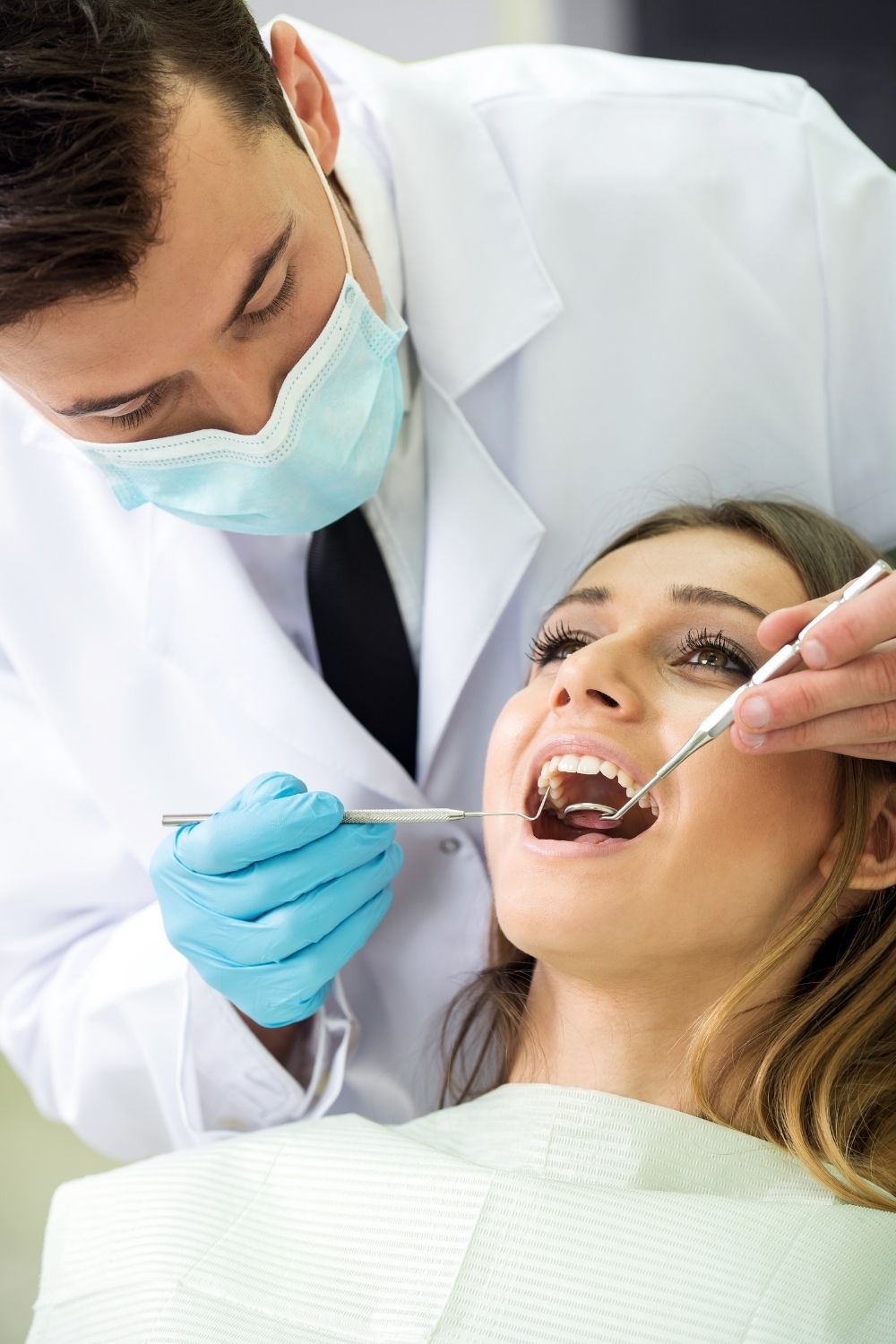April is Oral Cancer Awareness Month
Oral and pharyngeal cancer (cancer of the mouth and upper throat) collectively kills nearly one person every hour, every day of the year.
Of the people newly diagnosed with these cancers, only about 60% will live longer than 5 years. Moreover, many who do survive suffer long-term problems such as severe facial disfigurement or difficulties eating and speaking. The death rate associated with oral and pharyngeal cancers remains particularly high due to the cancer being routinely discovered late in its development.
Regular Oral Cancer Screenings Can Save Your Life
Regular oral cancer examinations performed by your oral health professional remain the best method for detecting oral cancer in its early stages.
Mouth cancers form when cells on the lips or in the mouth develop changes (mutations) in their DNA. The mutations changes tell the cells to continue growing and dividing when healthy cells would die. The accumulating abnormal mouth cancer cells can form a tumor. With time they may spread inside the mouth and on to other areas of the head and neck or other parts of the body. Mouth cancers most commonly begin in the flat, thin cells (squamous cells) that line your lips and the inside of your mouth.
It’s not clear what causes the mutations in squamous cells that lead to mouth cancer. But doctors have identified factors that may increase the risk of mouth cancer.
Oral Cancer Risk Factors
Factors that can increase your risk of mouth cancer include:
Tobacco use of any kind, including cigarettes, cigars, pipes, chewing tobacco and snuff, among others
A weakened immune system
Heavy alcohol use
A sexually transmitted virus called human papillomavirus (HPV)
Excessive sun exposure to your lips
Reduce Your Risk
There’s no proven way to prevent mouth cancer. However, you can reduce your risk of mouth cancer if you:
Stop using tobacco or don't start.
If you use tobacco, stop. If you don’t use tobacco, don’t start. Using tobacco, whether smoked or chewed, exposes the cells in your mouth to dangerous cancer-causing chemicals.
Avoid excessive sun exposure to your lips.
Protect the skin on your lips from the sun by staying in the shade when possible. Wear a broad-brimmed hat that effectively shades your entire face, including your mouth. Apply a sunscreen lip product as part of your routine sun protection regimen.
Drink alcohol only in moderation, if at all.
Chronic excessive alcohol use can irritate the cells in your mouth, making them vulnerable to mouth cancer. If you choose to drink alcohol, do so in moderation. For healthy adults, that means up to one drink a day for women of all ages and men older than age 65, and up to two drinks a day for men age 65 and younger.
See your dentist regularly.
As part of a routine dental exam, ask your dentist to inspect your entire mouth for abnormal areas that may indicate mouth cancer or precancerous changes.
Better Dentistry is Our Mission
We Are Open!

